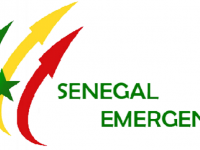Business
IMF Executive Board Completes Fifth Review Under the Policy Support Instrument
Growth in Senegal to exceed 6% in 2017

Flag Senegal (Source: Flags.net)
USPA NEWS -
Growth is expected to exceed 6 percent in 2017 for the third year in a row, while inflation remains low. The Executive Board of the International Monetary Fund (IMF) completed the fifth review of Senegal´s economic performance under a program supported by the Policy Support Instrument (PSI). The PSI supports the authorities´ macroeconomic reforms designed to advance the Plan Sénégal Emergent (PSE), the authorities´ strategy to increase growth and reduce poverty while preserving macroeconomic stability and debt sustainability. It was approved on June 24, 2015 and extended by one-year to June 24, 2019. The Board´s decision was taken on a lapse of time basis.
The Executive Board of the International Monetary Fund (IMF) completed the fifth review of Senegal´s economic performance under a program supported by the Policy Support Instrument (PSI). The PSI supports the authorities´ macroeconomic reforms designed to advance the Plan Sénégal Emergent (PSE), the authorities´ strategy to increase growth and reduce poverty while preserving macroeconomic stability and debt sustainability. It was approved on June 24, 2015 and extended by one-year to June 24, 2019. The Board´s decision was taken on a lapse of time basis.In completing the fifth review of Senegal´s economic performance under the program supported by the PSI, Executive Directors endorsed staff´s appraisal, as follows:
SENEGAL'S MACROECONOMIC SITUATION IS STABLE AND GROWTH EXPECTED TO EXCEED 6% IN 2017-----
Senegal´s macroeconomic situation is stable. Growth is expected to exceed 6 percent in 2017 for the third year in a row, while inflation remains low. The fiscal deficit has been declining progressively in recent years and is projected to reach 3.7 percent of GDP in 2017, but debt has grown faster than the fiscal deficit would imply as the Treasury has financed the deficits of the Post Office and Civil Service Pension, as well as expenditures from past years´ appropriations. The current account deficit is projected to increase to 7.8 percent of GDP in 2017 due to higher oil prices and slightly slower export growth, reversing a decreasing trend over the past several years. Program performance through September 2017 has been satisfactory. All end-June 2017 assessment criteria and indicative targets were met, except for the indicative target on tax revenue which was missed due to lower-than projected oil-related revenues. Of the three structural benchmarks (SBs) set for this review, two were met, while further progress is needed on the third SB to make the platform to share information between the tax and customs departments fully operational to improve revenue collection. The outlook for the Senegalese economy remains on the whole positive. Senegal needs to continue implementing its structural reform program to maintain high growth rates of recent years. It has made progress in implementing public infrastructure projects, but it now needs to accelerate the implementation of reforms to improve the business environment and attract private investment. The new Special Economic Zone could play a catalytic role in this regard by leading by example in terms of good governance. Further progress is needed on implementing measures to facilitate small and medium enterprise access to credit and, more broadly, the transition of the informal sector to the formal sector. Sources of external risk include spillover from regional security threats and tightening of regional and global financial market conditions.
THE MAIN MACROECONOMIC CHALLENGE FOR SENEGAL IN THE SHORT TERM IS TO FIND FISCAL SPACE FOR INVESTMENT IN INFRASTRUCTURE----------------------------------------------------------------------------------------------
The main macroeconomic challenge for Senegal in the short term is to find the fiscal space for investment in infrastructure to facilitate private sector development, on the one hand, and for social spending, on the other hand, without undermining debt sustainability. To achieve this, the authorities will need to contain financing needs for Treasury operations through reforms of the Post Office, Civil Service Pensions and thecomptes de dépôt. Over the medium term, continuing to support the Plan Sénégal Emergent (PSE) will require raising tax revenues to the WAEMU convergence criterion level following the GDP rebasing, which will entail improvements in tax policy and revenue administration. While Senegal remains at low risk of debt distress, debt indicators have deteriorated, requiring strong progress on fiscal and structural reforms. Senegal needs to continue to manage its debt prudently, including exercising caution with non-concessional debt.------------------------------------
***The PSI is an instrument of the IMF designed for countries that may not need, or want, IMF financial assistance, but still seek IMF advice, monitoring and endorsement of their policies. The PSI helps countries design effective economic programs that, once approved by the IMF's Executive Board, signal to donors, multilateral development banks, and markets the Fund's endorsement of a member's policies (see http://www.imf.org/external/np/exr/facts/psi.htm).With apo, source : IMF
Senegal Imf Growth Policy Support Instrument President Macky Sall Plan Senegal Emergent (pse Macroeconomy Rahma Sophia Rachdi J Foster
Liability for this article lies with the author, who also holds the copyright. Editorial content from USPA may be quoted on other websites as long as the quote comprises no more than 5% of the entire text, is marked as such and the source is named (via hyperlink).







